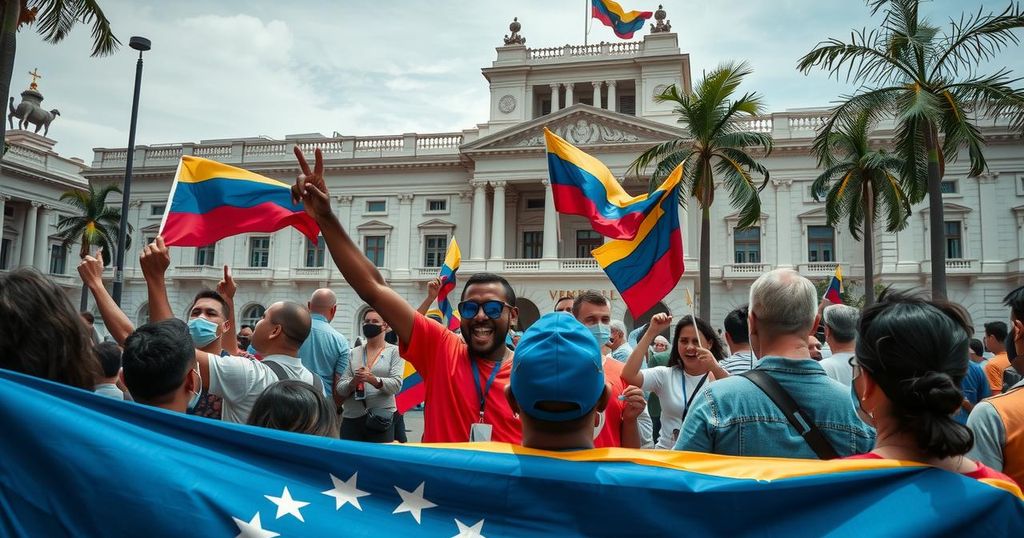Maduro Announces Release of Protesters Amid Legitimacy Crisis in Venezuela

Nicolás Maduro has announced the release of over 100 protesters detained after contested elections, following a prior release of 225 inmates last month. Amid allegations of fraud and a legitimacy crisis, the government is facing heightened scrutiny from human rights organizations. This move is partially aimed at quelling international criticism, yet violations and arrests continue within the country.
In a bid to alleviate mounting pressure, Venezuelan President Nicolás Maduro has announced the release of over 100 individuals detained during protests following the contentious presidential election. This recent measure follows the conditional release of 225 detainees last month amid a legitimacy crisis for the government. The total of arrested protesters soared to over 2,000 after the elections, leading to renewed calls for action from human rights organizations.
The Venezuelan Vice Presidency of Citizen Security and Peace has confirmed 103 releases since Tuesday; however, human rights groups dispute these figures, having verified only 25 releases as of Thursday. Among those released are 19 teenagers, who were among more than 150 individuals arrested during protests on July 29 and 30, aimed at denouncing the allegedly fraudulent election results proclaimed by the National Electoral Council.
The government’s actions come during a critical phase, with an inauguration set to occur next month, intensifying the scrutiny of its governance against accusations of human rights abuses. Calls for transparency and accountability have gained traction, especially in light of ongoing investigations at the International Criminal Court regarding alleged human rights violations, including arbitrary detentions and forced disappearances.
Despite these gestures of goodwill, the repressive climate persists, with officials from international human rights bodies returning to Venezuela after being expelled earlier. Reports of continued arrests of political opponents emphasize the severity of the situation. Amidst a climate of fear and repression, civil society remains adamant in its demand for justice and the protection of human rights in Venezuela.
Additionally, the cases of missing individuals, including Venezuelan-Spanish citizen Sofía María Sahagún Ortíz, calls further attention to the risks facing those traveling through Venezuela’s airports. Human rights advocates stress the need for the government to disclose information regarding her status and whereabouts, advocating for the respect of legal rights.
The political landscape in Venezuela has been fraught with tension, particularly following the recent contested presidential election, in which President Nicolás Maduro was declared the victor amid widespread allegations of electoral fraud. This crisis has resulted in significant public unrest, leading to mass protests and subsequent detentions of thousands of demonstrators. The government’s response, characterized by heavy-handed tactics, has drawn international condemnation and heightened the scrutiny of its legitimacy. Amid this backdrop, Maduro’s administration has been compelled to exhibit some conciliatory measures, such as the release of detained protesters, in an effort to mitigate criticism and restore a semblance of public trust.
In conclusion, the recent announcement by President Nicolás Maduro to release over 100 detained protesters is a strategic move aimed at alleviating international and domestic pressure following a disputed election. While this development may be viewed as a step towards fostering dialogue, the persistence of human rights violations and the atmosphere of fear in Venezuela indicate that significant challenges remain. The international community continues to monitor the situation, particularly the treatment of detained individuals and the government’s adherence to human rights commitments.
Original Source: english.elpais.com








